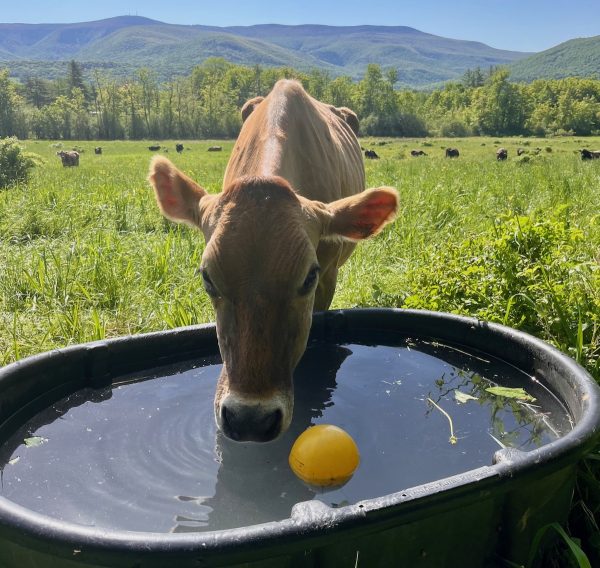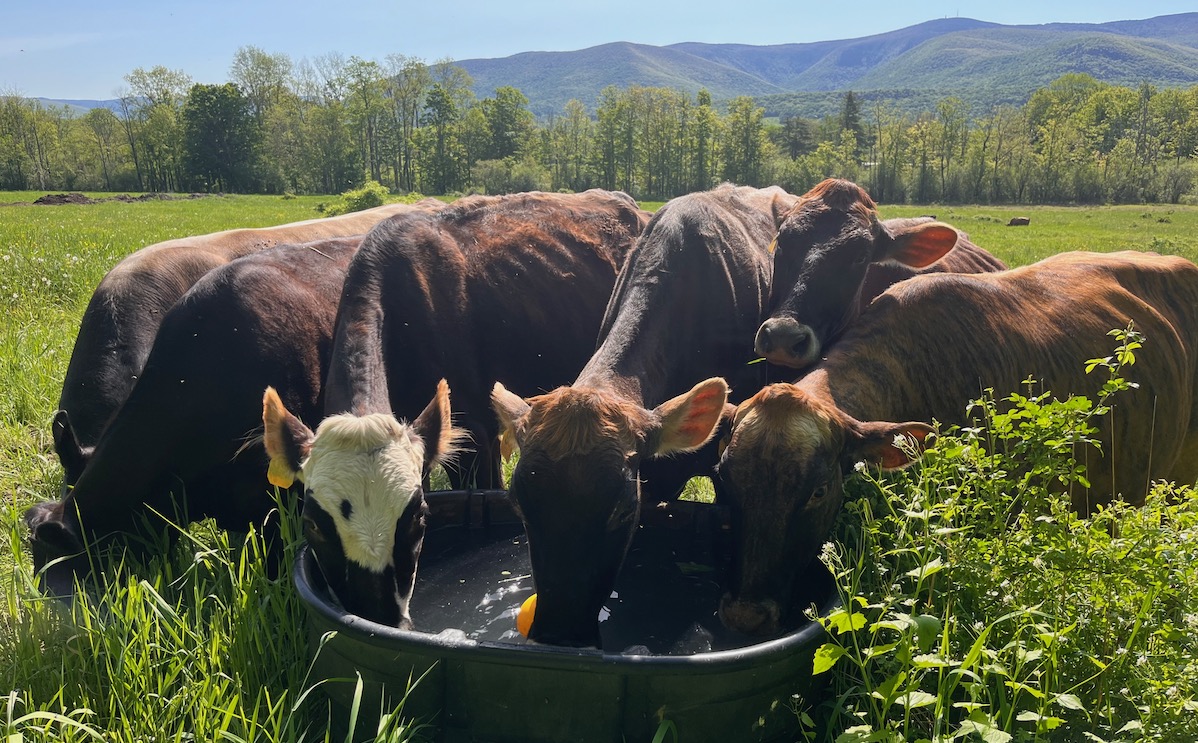We are very excited to announce that we were awarded a New England Farmer Microgrant from American Farmland Trust!

We are fortunate to have 200 acres of varied pasture to nourish our animals; however improvements to the infrastructure of that land wilł expand our ability to graze more effectively. Right now, on many of the pastures, when cows need water they have to go to one end of the pasture to access it, and they typically gravitate toward munching on the grass closest to that water source. We often set up laneways back to the water to prevent overgrazing, but that results in heavy impact along these areas. This grant will allow us to expand our water access so water can always be nearby and the cows can be moved off of grazed pasture daily. The reduced amount of walking will help increase their overall health and in the dairy herd, result in increased milk production. Expanding our water lines also allows us to restrict livestock access to sensitive waterways, preserving water quality and wildlife habitats, and reducing erosion.
This spring we will have lots of new waterline to lay. For the most part, we lay this line above-ground, but spooling out the PVC tube takes many hands! We may be looking for help to help get this done.
While this grant is a big boost to help us improve our sustainability, it makes evident how fundamental grants and community support are to keeping small farms viable. Replacing aging infrastructure is essential to improving all aspects of farming and creamery production, though the cost to do so is often beyond our capacity. As costs for infrastructure, supplies, and services have increased at an astronomical rate since the start of the pandemic, we have made every effort to meet the needs of the community and support our mission. In the first year of the pandemic our farm store expanded services, providing local foods and providing what disrupted supply chains for grocery stores could not. Our farm store sales more than doubled from 2019 to 2020, when we had local nutritious food and a space that the community felt safe shopping in. Unfortunately, we have seen almost a 20% decrease in our farm store sales since 2020. Much of that, we attribute to a “return to normal” and our community feeling comfortable shopping in big box stores. This is something we’ve been reflecting on in our own shopping habits — what does a commitment to local really look like?

